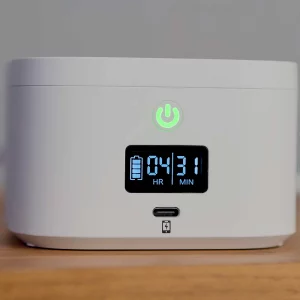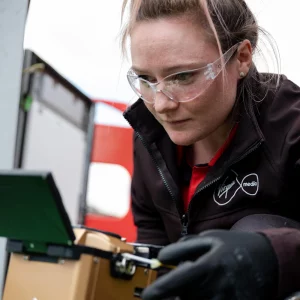Sponsored Links
BT Cut's Wholesale Broadband ADSL Pricing
Posted: 13th Nov, 2006 By: MarkJ
BT has today revealed how it plans to reduce wholesale broadband pricing once 1.5m lines have been unbundled (LLU). The good news is that from May 2007 IPStream rental, which most BT based ADSL ISP's still use, will be getting cheaper! There's even a hint towards ADSL2+ developments:
We like BT's move to make migration (MAC) between providers more "agreeable" to ISP's, although it may be a moot point if Ofcom rules a compulsory MAC process necessary (we hope they will).
Ofcom itself has given a careful welcome by publishing an open letter to BT:
Typically none of this is to say that one of BT's rivals couldn't still stick a brick in the works before May. The big gamble will be whether or not any BT based ISP's pass said savings on.
Historically most providers adapt at a deliberately slow pace, while a handful may make things cheaper. Regardless, market competition is fierce and while some can not reduce their prices any further, there will be others that can.
From May 2007, service providers will see the rental charge for the most highly used wholesale broadband product BT IPstream reduced by 9 per cent, with the price coming down from £8.40 per line per month to £7.63. This price is expected to be reduced further in the second round of changes planned for January 2008.
There will also be further savings for service providers at high density exchanges. The current rebate scheme that applies at 561 of these exchanges is set to be revised to cover 1,016 exchanges. The level of this rebate is also set to increase from £1.10 to £1.24 from May 2007. The rebate reflects the lower cost of providing broadband in these areas.
The increase in the rebate combined with the lower rental price - will reduce the net monthly rental price (i.e. rental less rebate) in these exchanges from £7.30 to £6.39. This is a reduction of 12.5 per cent. Further increases to the rebate are also planned from January 2008.
Service providers choosing the BT Datastream product - a simpler service than that provided by the BT IPstream product - are also set to benefit from the revised rebate scheme. The existing rebate of £1.15 for connections to the current 561 exchanges will be extended to the 1,016 designated exchanges. This will effectively reduce the rental charge per end user from £7.05 to £5.90 in those areas from May 2007.
BT Wholesale has started to purchase the LLU product and will consequently be charged for the provision and cessation of a line from Openreach. From May 2007, BT Wholesale intends to reflect these charges through connection and cessation charges for its service provider customers. As a result, the connection charge for BT IPstream and BT Datastream products will come down from £40 (ex VAT) to £34.86 (ex VAT) reflecting the charges from Openreach.
A cessation charge is also set to be introduced where service providers order the termination of service on an end users line. This charge of £33.75 (ex VAT) reflects the input costs from Openreach. The cessation charge will not apply when a consumer wants to move from one service provider to another and both service providers use the MAC process. BTs aim is to encourage more service providers to participate in the MAC process, which is designed to make it simpler for consumers to move from one service provider to another. The cessation charge will also not apply where there are bulk migrations to LLU.
Finally, BT Wholesale also confirmed today it intends to trial Wholesale Broadband Connect in selected exchanges across the UK from Summer 2007. This is a new next generation broadband service created using 21CN. Using ADSL and ADSL2+ technology, it will provide national connectivity enabling communications providers to connect their broadband and data customers to their own networks and services efficiently and cost effectively. With planned speeds of up to 24 Mbit/s, BT Wholesale Broadband Connect is set to be available to almost half the UK from early 2008, with nationwide coverage linked to the rollout of 21CN.
There will also be further savings for service providers at high density exchanges. The current rebate scheme that applies at 561 of these exchanges is set to be revised to cover 1,016 exchanges. The level of this rebate is also set to increase from £1.10 to £1.24 from May 2007. The rebate reflects the lower cost of providing broadband in these areas.
The increase in the rebate combined with the lower rental price - will reduce the net monthly rental price (i.e. rental less rebate) in these exchanges from £7.30 to £6.39. This is a reduction of 12.5 per cent. Further increases to the rebate are also planned from January 2008.
Service providers choosing the BT Datastream product - a simpler service than that provided by the BT IPstream product - are also set to benefit from the revised rebate scheme. The existing rebate of £1.15 for connections to the current 561 exchanges will be extended to the 1,016 designated exchanges. This will effectively reduce the rental charge per end user from £7.05 to £5.90 in those areas from May 2007.
BT Wholesale has started to purchase the LLU product and will consequently be charged for the provision and cessation of a line from Openreach. From May 2007, BT Wholesale intends to reflect these charges through connection and cessation charges for its service provider customers. As a result, the connection charge for BT IPstream and BT Datastream products will come down from £40 (ex VAT) to £34.86 (ex VAT) reflecting the charges from Openreach.
A cessation charge is also set to be introduced where service providers order the termination of service on an end users line. This charge of £33.75 (ex VAT) reflects the input costs from Openreach. The cessation charge will not apply when a consumer wants to move from one service provider to another and both service providers use the MAC process. BTs aim is to encourage more service providers to participate in the MAC process, which is designed to make it simpler for consumers to move from one service provider to another. The cessation charge will also not apply where there are bulk migrations to LLU.
Finally, BT Wholesale also confirmed today it intends to trial Wholesale Broadband Connect in selected exchanges across the UK from Summer 2007. This is a new next generation broadband service created using 21CN. Using ADSL and ADSL2+ technology, it will provide national connectivity enabling communications providers to connect their broadband and data customers to their own networks and services efficiently and cost effectively. With planned speeds of up to 24 Mbit/s, BT Wholesale Broadband Connect is set to be available to almost half the UK from early 2008, with nationwide coverage linked to the rollout of 21CN.
We like BT's move to make migration (MAC) between providers more "agreeable" to ISP's, although it may be a moot point if Ofcom rules a compulsory MAC process necessary (we hope they will).
Ofcom itself has given a careful welcome by publishing an open letter to BT:
"Our strategic view is that it is in the best interests of consumers if wholesale broadband prices continue to be determined by the market and not regulation. On the basis of the commitments to price floors set out in your letters, we propose to continue with this strategy and see no reason to intervene at this stage."
Typically none of this is to say that one of BT's rivals couldn't still stick a brick in the works before May. The big gamble will be whether or not any BT based ISP's pass said savings on.
Historically most providers adapt at a deliberately slow pace, while a handful may make things cheaper. Regardless, market competition is fierce and while some can not reduce their prices any further, there will be others that can.
Search ISP News
Search ISP Listings
Search ISP Reviews
Latest UK ISP News








Cheap BIG ISPs for 100Mbps+
150,000+ Customers | View More ISPs
Cheapest ISPs for 100Mbps+
Modest Availability | View More ISPs
Latest UK ISP News
Helpful ISP Guides and Tips
Sponsored Links
The Top 15 Category Tags
- FTTP (6805)
- BT (3884)
- Politics (3077)
- Business (2767)
- Openreach (2665)
- Building Digital UK (2515)
- Mobile Broadband (2476)
- FTTC (2142)
- Statistics (2131)
- 4G (2094)
- Virgin Media (2027)
- Ofcom Regulation (1780)
- 5G (1734)
- Fibre Optic (1604)
- Wireless Internet (1595)
Sponsored
Copyright © 1999 to Present - ISPreview.co.uk - All Rights Reserved - Terms , Privacy and Cookie Policy , Links , Website Rules






























